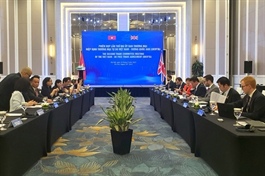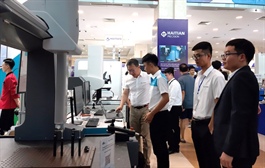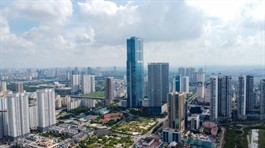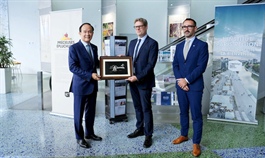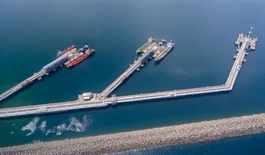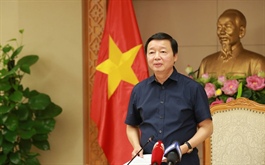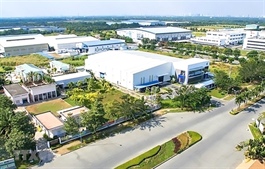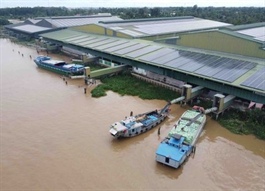Vietnam emerges as attractive destination for Western European, North American investors
Vietnam emerges as attractive destination for Western European, North American investors
Vietnam is seeing strong inflows of capital from Western Europe and North America into chip production and renewable energy development, heard the Vietnam Industrial Property Forum held in Ho Chi Minh City on Thursday.

Speaking at the event, organized by Dau Tu (Investment) newspaper, Do Van Su, deputy head of the Foreign Investment Agency under the Ministry of Planning and Investment, said that Vietnam is enjoying an increase in investments from Western European and North American investors.
Apart from Vietnam’s traditional investment sources like Northeast Asia and Singapore, investors from Germany, the Netherlands, France, Spain, and North America have been pouring capital into the country’s renewable energy sector.
The chief executive officer of the Semiconductor Industry Association of the United States, along with representatives from various U.S. enterprises, visited Vietnam in January to survey the chip production industry’s investment climate, said Su.
The shift in investment sources has followed the commitment made by the Vietnamese government at the 2021 United Nations Climate Change Conference (COP26) to achieving net-zero emissions by 2050.
In addition to chip production, many of these investments are being made in the country’s renewable energy sector.
According to Bruno Jaspaert, CEO at DEEP C Industrial Zones, Vietnam’s participation in a series of international trade agreements has helped smooth the path for investors to thrive and expand their operations in the country.
Land rental in Vietnam remains lower than that in other Southeast Asian nations. In addition, the China Plus One strategy, a business strategy designed to avoid investing only in China and diversify business into other countries, has become popular, opening a wider door for Vietnam to lure foreign investors, said Jaspaert.
Jaspaert also suggested that Vietnam take into account manpower and energy to make the country more attractive to investors, including seeking out solutions to a potential future worker shortage due to an aging population, as well as a lack of electricity for production.
Paul Wee, financial director at BW Industrial Development JSC, said that many major firms and groups have moved their production out of China over the past few years, thereby boosting investment in India, Indonesia, and Thailand.
Vietnam should improve energy infrastructure and ensure a sufficient power supply and better workforce in order to capitalize on the shift, said Wee.
Big investors not only pay attention to infrastructure but they also require abundant electricity supply. They will not be okay with power outages, Wee said.



